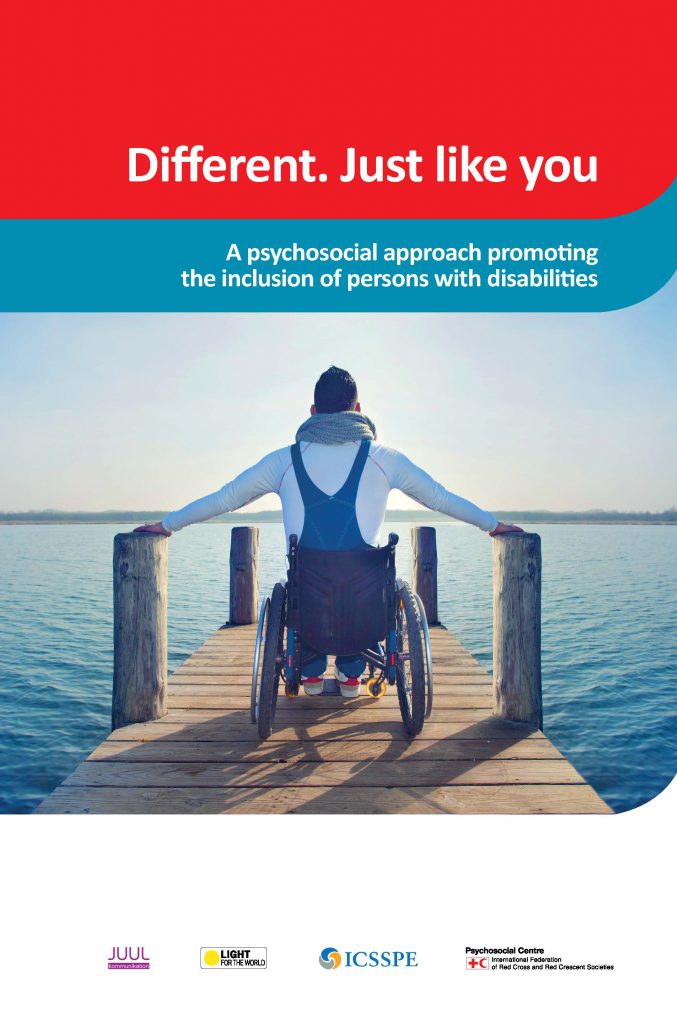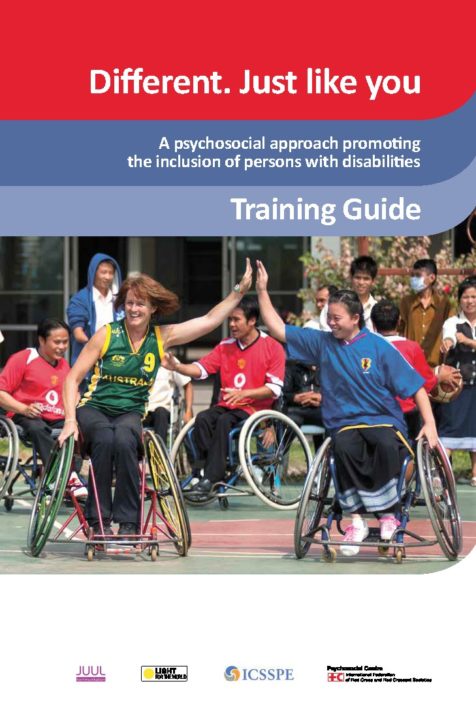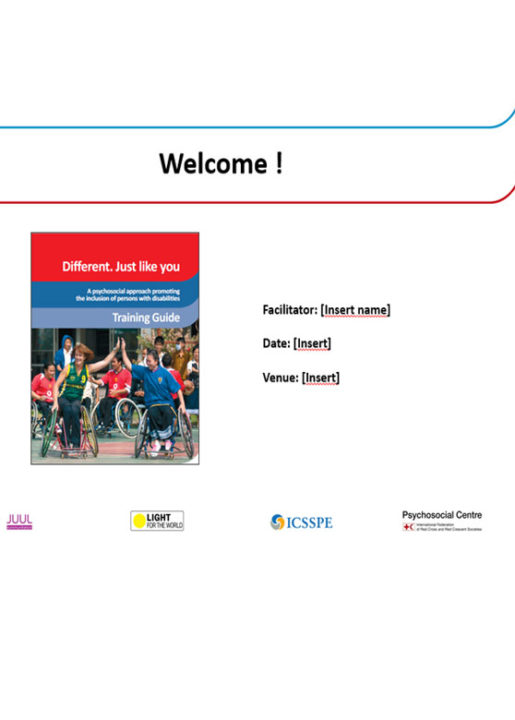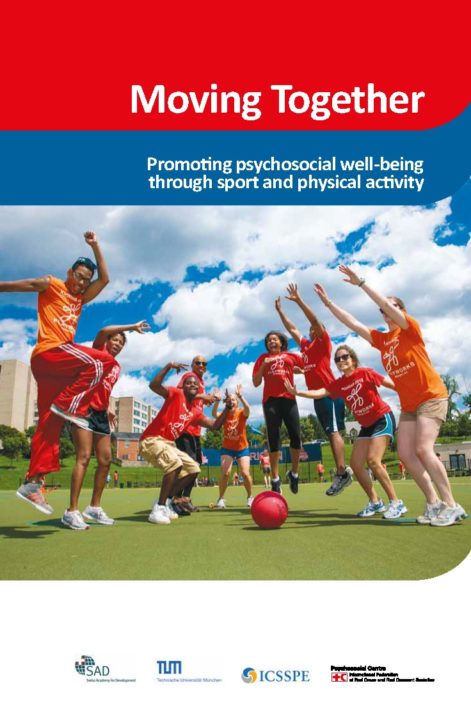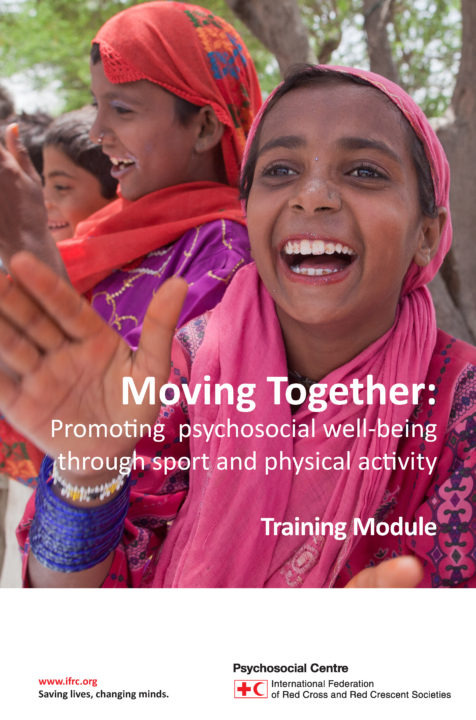Different. Just like you: A psychosocial approach promoting the inclusion of persons with disabilities’, has two key aims:
- to create awareness of the importance of psychosocial support and inclusion in promoting the well-being of persons with disabilities
- to provide guidance about psychosocial support and inclusion, along with practical resources for inclusive psychosocial activities for all kinds of settings.
The handbook describes best practice in psychosocial support and inclusion, and features a wide range of activities – mainly adapted sports and other physical activities – that give persons with disabilities the opportunity to release their full potential and engage actively in society. The handbook is based on a survey of best practice and programming in a number of selected organizations in Europe, Asia, the Americas and Africa. The organizations selected work primarily with children and youth with disabilities. The children and youth often face difficulties in accessing activities, education, employment and human rights in their communities because of the disabling effects of impairment.


